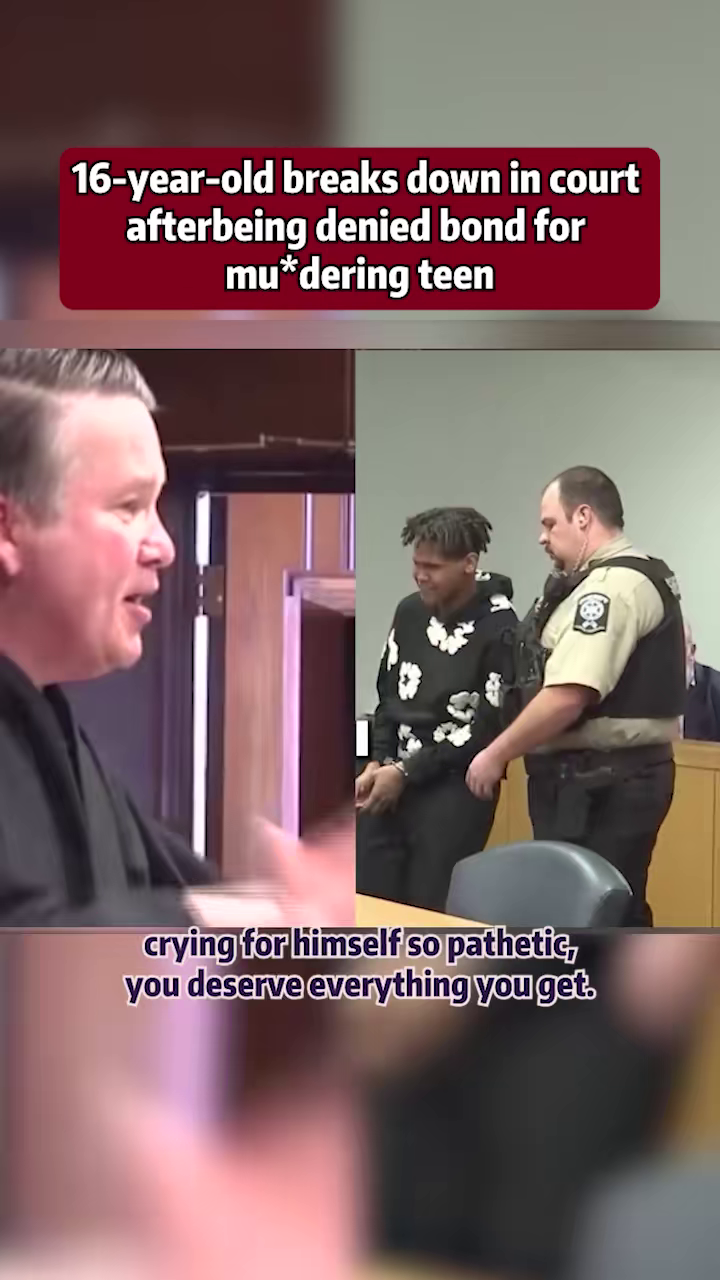The tragic incident unfolded last month when Dawkins, a promising student-athlete at Ashbrook High School, was running errands for his mother, walking along North Chester Street. Witnesses say Simpson approached him, and moments later, a single gunshot echoed through the neighborhood. Dawkins collapsed at the scene and was later pronounced dead at the hospital.
In court this week, prosecutors revealed that Simpson had a history of harassing and threatening Dawkins at school. The victim’s grandmother, Mary Dawkins, emotionally addressed the court, saying:
“He followed my grandson home more than once. We warned the school. Nobody listened. And now he’s gone.”
Under North Carolina’s revised Juvenile Justice Reform Act, teenagers aged 16 and 17 can now be prosecuted as adults for certain violent crimes — including murder.
When the judge denied bond, Simpson reportedly dropped his head into his hands and wept as his mother sobbed from the back of the courtroom.
“You’re being charged as an adult,” the judge said. “This court finds the allegations severe enough to warrant full prosecution under adult criminal law.”
Legal experts say the decision highlights a growing debate over how the justice system handles juvenile offenders involved in violent crimes. Supporters of the law argue that stricter penalties deter youth violence, while critics warn it could destroy young lives before they have a chance to reform.
Community members gathered outside the courthouse, holding candles in memory of Dawkins — a football player remembered for his leadership, laughter, and love for his family.
“He was just walking to the store for his mom,” one friend said. “He didn’t deserve this.”
The case has reignited national conversation about whether harsher punishments truly reduce juvenile crime or simply shift young offenders into an unforgiving system.
For now, Simpson remains in custody at a county detention facility awaiting trial — no longer as a boy, but as a man under the law.

